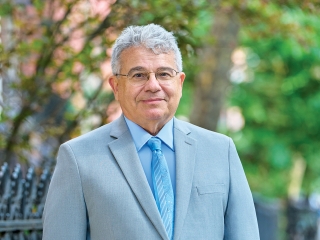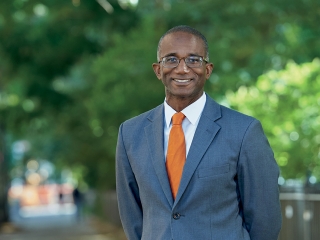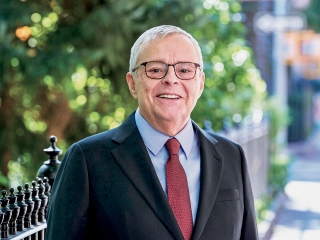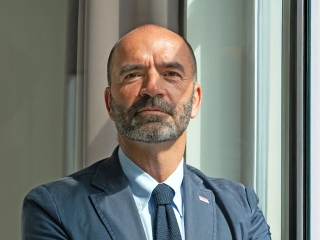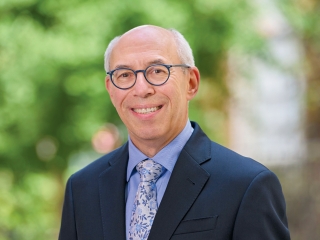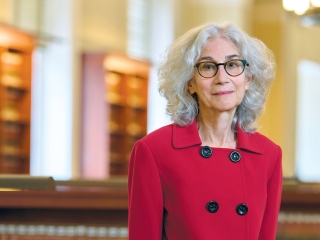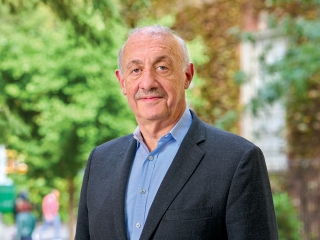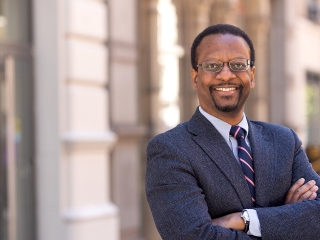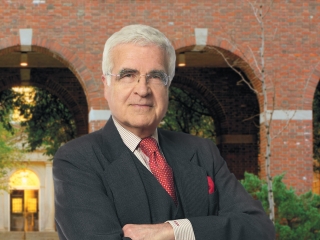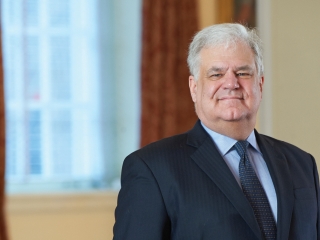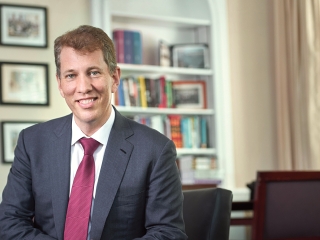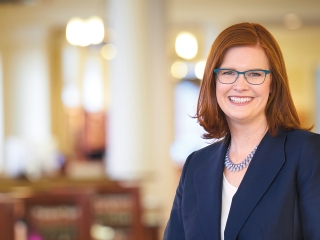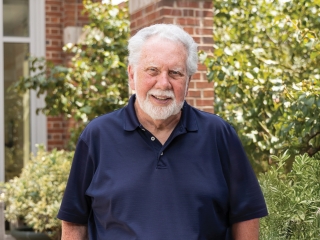Litigation & Procedure
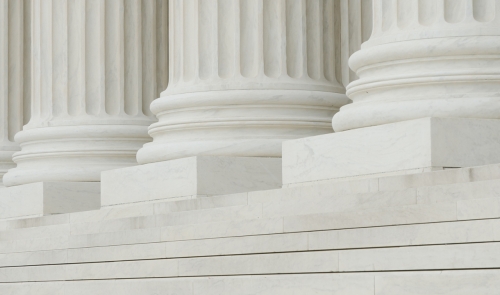
Overview
The NYU procedure faculty have participated in some of the most significant cases involving civil procedure, and have authored some of the key legal texts in the discipline. They routinely testify before Congress about procedural reform, appear as amicus curiae in litigation before the federal circuit courts and the Supreme Court of the United States, and argue headline cases.
The first-year study of Procedure is allied with a hands-on learning course—Lawyering—in which students experience how legal principles play out in practice. They analyze legal questions, develop facts, interview and counsel clients, and engage in written and oral advocacy, all within a framework informed by Civil Procedure. In upper level courses, students can enroll in courses involving such topics as evidence, the federal courts, and international litigation and arbitration. They also get firsthand experience through NYU Law clinics, ranging from the Brennan Center Public Policy Advocacy Clinic and the Legislative and Regulatory Process Clinic to Government Civil Litigation Externship opportunities for the Southern and Eastern Districts of New York and the Arthur Garfield Hays Civil Liberties Program.
The Law School fosters community and engagement with legal ideas through its centers and programs, hosting events throughout the year and supporting ongoing projects:
The Institute of Judicial Administration solidifies NYU Law’s status as a non-partisan resource for the judicial community. IJA programming includes annual appellate judges training seminars, workshops on special topics in the law, and the annual William Brennan Jr. Lecture on State Courts and Social Justice.
The Brennan Center for Justice is a non-partisan think tank and advocacy group focused on law and policy and dedicated to the causes of democracy and justice. With offices in New York and Washington, DC, the institute addresses such contemporary problems as voting rights, campaign finance reform, and mass incarceration.
The Center on Civil Justice is dedicated to the study of the civil justice system in the United States and how it can continue to fulfill its purposes. The center draws on the unmatched strengths of the NYU Law faculty in the fields of procedure and complex litigation, as well as on a Board of Advisers consisting of leading practitioners and judges, to identify the problems that most deserve further investigation and engagement, and to fill a void in scholarly and policy analysis.
International business transactions are at the forefront of the work of NYU Law’s Center for Transnational Litigation, Arbitration, and Commercial Law. In addition to hosting scholars-in-residence as well as conferences and forums, the center publishes the Transnational Notes blog.
At NYU Law, students are encouraged to take advantage of all the Law School has to offer, from working directly with faculty on their research, to getting involved with our centers, to participating in clinics and student organizations. Here are some opportunities for those specifically interested in litigation and procedure:
The Arthur Garfield Hays Civil Liberties Program, the oldest and most respected program of its kind in the United States, awards fellowships to a small group of third-year students committed to civil liberties. Fellows work in special internships, usually two during the academic year, for civil liberties and other human rights organizations on litigation, policy recommendations, and other law-related assignments. They also attend a seminar and have opportunities to meet with distinguished practitioners and former fellows.
As one of NYU Law’s 10 academic journals, NYU Moot Court Board publishes an annual casebook, participates in more than a dozen major moot court competitions each year, and holds an international moot court competition at NYU Law. Students interested in global issues can also apply for international moot court competition funding.
Legislative and Regulatory Process Clinic students, led by Robert Bauer and Sally Katzen, are introduced to the roles and skills of the government lawyer while working in Washington, DC. The clinic provides an understanding of government decision-making that will help those students intending to seek positions in the government and offers those heading to the private sector greater insight into the workings of government that often significantly affect their clients.
NYU Law’s Judicial Clerkship Office works with students to help them secure summer and post-graduate clerkships with judges throughout the country and abroad. Clerkships offer NYU Law graduates the opportunity to put theory into practice while learning directly from the judges they serve. NYU Law alumni have secured clerkships at all levels of the judiciary, including the Supreme Court of the United States. JD and LLM graduates have also accepted clerkships on the International Court of Justice in The Hague.
Our Office of Career Services and the Public Interest Law Center (PILC) supports NYU Law students pursuing law jobs in private firms, government offices, and not-for-profit organizations (for example, civil legal services and public defense). Thanks to PILC Summer Funding grants, students regularly spend summers in organizations such as the Center for Constitutional Rights; LatinoJustice PRLDEF; NAACP Legal Defense and Educational Fund; New York Lawyers for the Public Interest; the US Department of Justice; and the US Equal Employment Opportunity Commission. Students also should be alert to special fellowship opportunities that may be available for 1L and 2L summer placements.
The LLM in International Business, Regulation, Litigation, and Arbitration focuses on transnational civil litigation.
Faculty
Herbert and Rose Rubin Professor of International Law
Beller Family Professor of Business Law
Faculty Director, Hauser Global Law School
Dwight D. Opperman Professor of Public Law
Director, Center for Labor and Employment Law
Director, Institute of Judicial Administration
Clarence D. Ashley Professor of Law
Director, Intesa Sanpaolo Center for Transnational Litigation, Arbitration, and Commercial Law
Max E. Greenberg Professor of Contract Law
Herbert M. and Svetlana Wachtell Professor of Constitutional Law and Civil Liberties
Co-Director, Arthur Garfield Hays Civil Liberties Program
Bonnie and Richard Reiss Professor of Constitutional Law
Dean
Cecelia Goetz Professor of Law
University Professor and Warren E. Burger Professor of Constitutional Law and the Courts
Stuyvesant P. Comfort Professor of Law
Director, Center for Financial Institutions
Faculty Co-Director, Center on Civil Justice
Eric M. and Laurie B. Roth Professor of Law
Dean Emeritus
Norman Dorsen Professor of Civil Liberties
President Emeritus, New York University
Dean Emeritus
Benjamin F. Butler Professor of Law
Adjunct Faculty
- Judge John Gleeson, United States District Court, Eastern District of New York
- Judge Albert Rosenblatt (Retired), Judicial Fellow
- John Siffert, Partner, Lankler Siffert & Wohl
Areas of Study
Get a sense of our academic specialties and the faculty that teach them—as well as the centers, colloquia, lectures, and student organizations that underscore them.
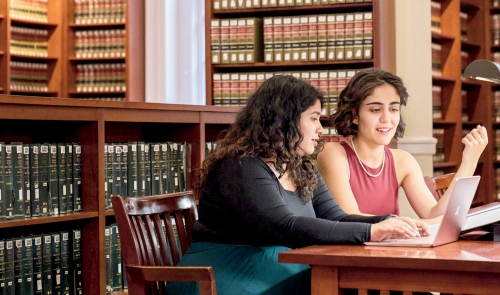
- Antitrust, Intellectual Property, & Information
- Cities and Land Use
- Constitutional, Civil Rights, & Democracy
- Corporate & Commercial Law
- Criminal Justice
- Environmental
- Family, Gender, & Sexuality
- Global & International
- Human Rights
- Immigration
- Labor & Employment
- Law and Security
- Legal Theory, History, & the Social Sciences
- Litigation & Procedure
- Regulation & Public Policy
- Tax Area of Study


